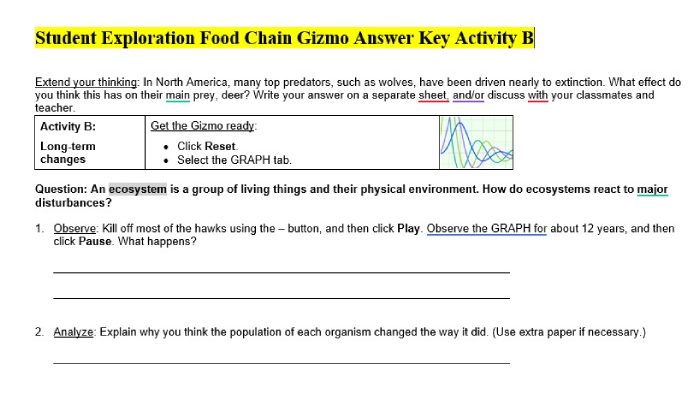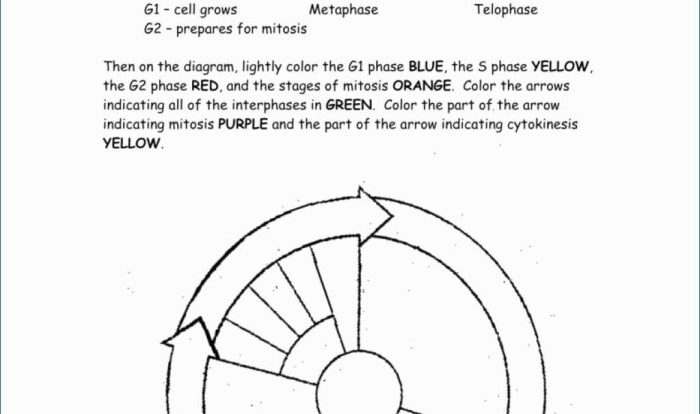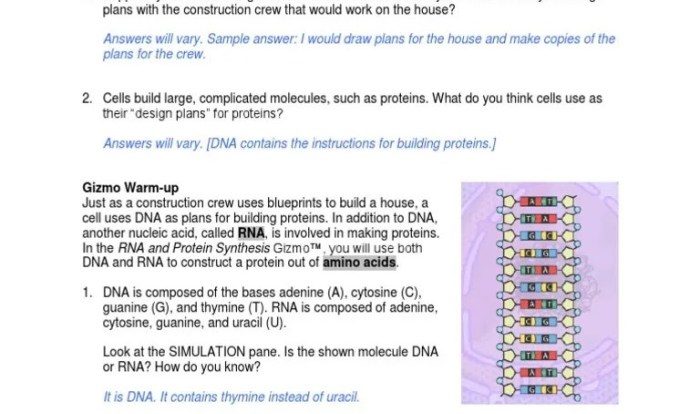Delving into the realm of biology 101 final exam practice test, this comprehensive guide empowers you to conquer the challenges that lie ahead. Geared towards academic excellence, this resource equips you with the knowledge and strategies to excel in your final assessment.
Biology 101 serves as the foundation for your journey in understanding the intricacies of life. Embark on this practice test to reinforce your grasp of fundamental concepts and emerge triumphant on exam day.
Introduction
Biologyis the scientific study of life and living organisms, including their structure, function, growth, origin, evolution, and distribution.
As a scientific discipline, biology is significant because it provides a systematic approach to understanding the natural world, particularly the living components of our planet. It employs scientific methods to investigate biological phenomena, leading to the discovery of fundamental principles that govern life processes.
Purpose of a Final Exam Practice Test in Biology 101
A final exam practice test in Biology 101 serves several important purposes:
- Assessment of Knowledge:It allows students to gauge their understanding of the course material and identify areas where they need further study.
- Exam Preparation:It helps students familiarize themselves with the format and structure of the actual final exam, reducing anxiety and improving their chances of success.
- Skill Development:By practicing answering exam-style questions, students enhance their critical thinking, problem-solving, and time management skills.
- Feedback and Improvement:Analyzing their performance on the practice test provides students with valuable feedback, enabling them to identify weaknesses and make necessary adjustments to their study strategies.
Key Concepts in Biology 101: Biology 101 Final Exam Practice Test
Biology 101 provides an introduction to the fundamental concepts that underpin the study of life. These concepts encompass the structure, function, and reproduction of cells, the principles of genetics, the mechanisms of evolution, and the intricate relationships within ecological systems.
Cell Biology, Biology 101 final exam practice test
Cells are the fundamental unit of life, and understanding their structure, function, and reproduction is essential for comprehending biological processes. Key concepts in cell biology include:
-
-*Cell structure
Cells are composed of various organelles, each with specialized functions. The nucleus contains the cell’s genetic material, while the mitochondria generate energy, and the endoplasmic reticulum facilitates protein synthesis.
-*Cell function
Cells perform numerous functions, including metabolism, growth, reproduction, and response to stimuli. These functions are facilitated by the coordinated activity of organelles and cellular components.
-*Cell reproduction
Cells reproduce through mitosis and meiosis. Mitosis produces two identical daughter cells, while meiosis generates gametes (sex cells) with half the genetic material of the parent cell.
Practice Test Structure and Format
Biology 101 final exam practice tests typically consist of a combination of question types to assess students’ understanding of the course material. The structure and format may vary slightly depending on the instructor and institution, but generally include the following:
Multiple Choice Questions
Multiple choice questions present students with a question or statement followed by several possible answers. Students must select the single best answer from the options provided. These questions test students’ ability to recognize and apply key concepts and facts.
Short Answer Questions
Short answer questions require students to provide brief, concise answers to specific questions or prompts. These questions assess students’ understanding of specific concepts and their ability to explain them in their own words.
Essay Questions
Essay questions ask students to write a more comprehensive response to a question or topic. These questions evaluate students’ ability to synthesize information, analyze data, and communicate their understanding of complex biological concepts.
Tips for Effective Test-Taking Strategies
To prepare for the biology 101 final exam, students should:
- Review the course syllabus and lecture notes thoroughly.
- Complete all assigned practice problems and review homework assignments.
- Attend review sessions or form study groups to discuss key concepts.
- Get a good night’s sleep before the exam.
- Arrive at the exam on time and with all necessary materials.
Study Resources and Preparation
Preparing for the Biology 101 final exam requires effective study strategies and access to relevant resources. This section provides a comprehensive guide to recommended materials, study methods, and time management techniques to enhance your exam preparation.
Recommended Resources
Familiarize yourself with the following resources to supplement your understanding of the course material:
- Textbooks:
- Campbell Biology, 12th Edition by Lisa A. Urry, Michael L. Cain, Steven A. Wasserman, Peter V. Minorsky, and Robert B.
Jackson
- Biology: A Global Approach, 12th Edition by Neil A. Campbell, Jane B. Reece, Lisa A. Urry, Michael L. Cain, Steven A.
Wasserman, Peter V. Minorsky, and Robert B. Jackson
- Campbell Biology, 12th Edition by Lisa A. Urry, Michael L. Cain, Steven A. Wasserman, Peter V. Minorsky, and Robert B.
- Study Guides:
- Study Guide for Campbell Biology, 12th Edition by Lisa A. Urry, Michael L. Cain, Steven A. Wasserman, Peter V. Minorsky, and Robert B.
Jackson
- Student Study Guide for Biology: A Global Approach, 12th Edition by Neil A. Campbell, Jane B. Reece, Lisa A. Urry, Michael L. Cain, Steven A.
Wasserman, Peter V. Minorsky, and Robert B. Jackson
- Study Guide for Campbell Biology, 12th Edition by Lisa A. Urry, Michael L. Cain, Steven A. Wasserman, Peter V. Minorsky, and Robert B.
- Online Resources:
- Khan Academy: https://www.khanacademy.org/science/ap-biology
- Crash Course: https://www.crashcourse.com/biology
- Bozeman Science: https://www.bozemanscience.com/biology
Effective Study Methods
Incorporate these techniques into your study routine to maximize retention and understanding:
- Active Recall:Regularly test yourself on the material without looking at your notes. This forces your brain to actively retrieve information, strengthening your memory.
- Spaced Repetition:Review the material at increasing intervals (e.g., 10 minutes, 1 hour, 1 day, 1 week) to reinforce learning and prevent forgetting.
- Concept Mapping:Create visual diagrams that connect key concepts and ideas. This helps organize information and identify relationships.
Study Schedule and Time Management
Plan a realistic study schedule to cover all the material thoroughly. Break down the material into smaller chunks and allocate specific time slots for studying. Use a planner or calendar to keep track of your schedule and stay organized.
Manage your time effectively by prioritizing tasks, eliminating distractions, and taking breaks when needed. Create a study environment that is free from distractions and conducive to concentration.
Practice Questions and Solutions
Practice questions are an essential part of preparing for the Biology 101 final exam. They allow you to test your understanding of the key concepts and identify areas where you need further study. The following practice questions cover a range of topics from the course, including cell biology, genetics, evolution, and ecology.
Each question is followed by a detailed solution and explanation. These explanations provide valuable insights into the concepts being tested and help you to understand why the correct answer is correct.
Cell Biology, Biology 101 final exam practice test
- Question:What is the function of the cell membrane?
- Solution:The cell membrane regulates the movement of substances into and out of the cell. It also protects the cell from its surroundings.
- Question:What is the difference between mitosis and meiosis?
- Solution:Mitosis is the process of cell division that produces two identical daughter cells. Meiosis is the process of cell division that produces four haploid daughter cells.
Genetics
- Question:What is the difference between a genotype and a phenotype?
- Solution:A genotype is the genetic makeup of an organism. A phenotype is the observable characteristics of an organism.
- Question:What is the law of independent assortment?
- Solution:The law of independent assortment states that the alleles of different genes are inherited independently of each other.
Evolution
- Question:What is the theory of evolution by natural selection?
- Solution:The theory of evolution by natural selection states that organisms that are better adapted to their environment are more likely to survive and reproduce.
- Question:What is the evidence for evolution?
- Solution:There is a wide range of evidence for evolution, including the fossil record, the comparative anatomy of different organisms, and the genetic similarities between different species.
Ecology
- Question:What is the difference between a population and a community?
- Solution:A population is a group of organisms of the same species that live in the same area. A community is a group of different populations that live in the same area.
- Question:What is the importance of biodiversity?
- Solution:Biodiversity is important because it provides a variety of ecosystem services, such as food, water, and shelter. It also helps to regulate the climate and protect against natural disasters.
Test-Taking Strategies and Tips
Effective test-taking strategies can significantly enhance your performance on the Biology 101 final exam. These strategies involve managing time wisely, understanding question types, and controlling stress levels.
Time Management
- Allocate time strategically: Divide the exam time among different sections based on their weight and difficulty.
- Start with easier questions: Begin with questions you are confident about to build momentum and reduce anxiety.
- Don’t dwell on difficult questions: If you encounter a challenging question, move on and return to it later if time permits.
Question Types
- Multiple Choice:Read the question and all answer choices carefully. Eliminate incorrect options and select the best answer.
- Short Answer:Answer concisely and accurately, providing specific details and avoiding unnecessary information.
- Essay Questions:Plan your response, organize your thoughts, and provide well-supported arguments and evidence.
Stress Management
- Prepare thoroughly: The best way to reduce stress is to be well-prepared. Study the material thoroughly and practice answering different types of questions.
- Take deep breaths: If you feel overwhelmed, take a few deep breaths to calm yourself and refocus.
- Stay positive: Maintain a positive attitude and remind yourself that you have prepared for this exam.
FAQ
What is the purpose of a biology 101 final exam practice test?
A practice test provides an opportunity to assess your understanding of the key concepts covered in biology 101, identify areas where further study is needed, and familiarize yourself with the format and types of questions that may appear on the actual exam.
How should I approach the practice test?
Treat the practice test as a simulated exam experience. Time yourself, create a distraction-free environment, and attempt all questions to the best of your ability. Review your answers thoroughly, identifying areas where you excelled and those that require improvement.
What are some effective study strategies for biology 101?
Active recall, spaced repetition, and concept mapping are proven techniques for enhancing retention and understanding. Engage with the material regularly, test yourself frequently, and seek clarification on concepts you find challenging.



